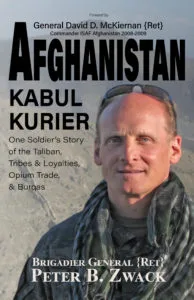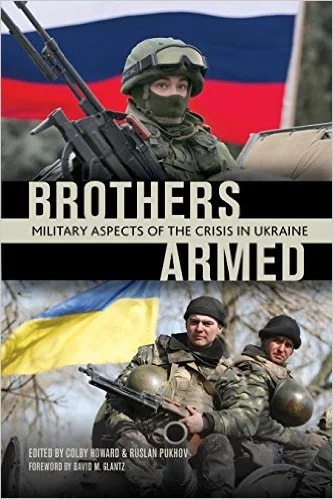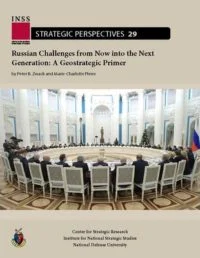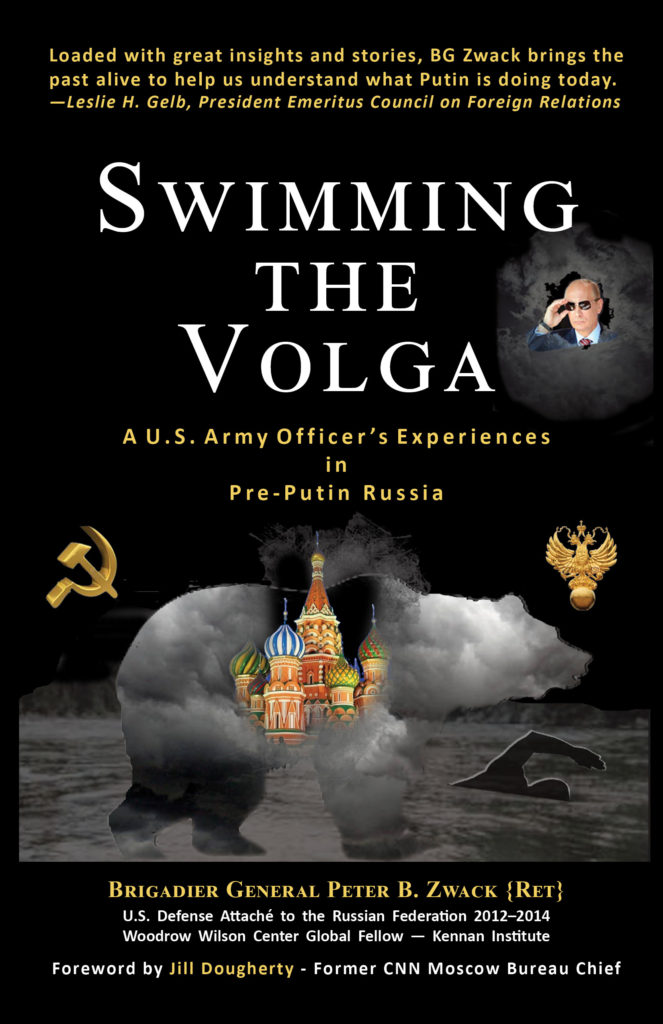Open Letter in Support of Free Inquiry and Discussion
WOTR STAFF
We, the undersigned, watched with worry the recent flurry of media and social-media speculation about a possible appointment to the National Security Council. This concerned Matthew Rojansky, the Director of the Woodrow Wilson’s Kennan Institute, a leading national center dedicated to the study of Russia and Eurasia. The personal attacks on Mr. Rojansky were intended simultaneously to damage Mr. Rojansky’s reputation and to shut down policy debate. We see all of this as very dangerous.
The media coverage and the social-media activity on this topic failed to meet the criteria of real journalism and of reasoned public debate. Baseless accusations were levied, some outlandish (of Mr. Rojansky as a “Kremlin asset”) and some deceptively moderate, the claim, for example, that Mr. Rojansky is “controversial,” as if his analyses and opinions are commonly considered beyond the pale. This is not the case. Mr. Rojansky is a respected member of the expert community in Washington, D.C. His ideas are well within the scope of serious debate about U.S. Russia policy. Those who should know better have unjustly sullied Mr. Rojansky’s reputation.
The attacks on Mr. Rojansky suggested that his views are unacceptable and therefore that they should bar him from government service, suggestions that are as untrue as they are injurious. Scholars, experts, and policymakers must carefully assimilate new evidence and regularly challenge old assumptions: the only guarantee of doing so is a range of perspectives expressed through vigorous debate. At issue is not just the intellectual health of a given expert community. At issue is nothing less than the process by which U.S. policy is made, and to succeed the process must be open. Many of the greatest disasters in the history of American foreign policy followed from the stovepiping of information or from the silencing or sidelining of one or another school of expert opinion. The histories of the Vietnam and Iraq Wars stand as cautionary examples.
The Biden administration is navigating an exceptionally complicated period of conflict and engagement with Russia. It deserves access to an expert community dedicated to the ideal of free inquiry and discussion and not to social-media insinuation, smear campaigns, and ad hominem invective. The experience of these past weeks shows that this ideal cannot be taken for granted. We the undersigned wish with this letter to defend the ideal of free inquiry and discussion. We encourage others as well to defend and uphold it. The consequences of doing otherwise will be dire for experts and non-experts alike.
Signatories
*All signers are acting in their personal capacity. Institutional affiliations are listed for purposes of identification only and do not imply institutional support for the content of the letter.
Graham Allison, Assistant Secretary of Defense for Policy and Plans, 1993-1994; Harvard Kennedy School
Dmitri Alperovich, Silverado Policy Accelerator
Steven Andreasen, Director for Defense Policy and Arms Control, National Security Council, 1993-2001; Hubert H. Humphrey School of Public Affairs, University of Minnesota
Deana Arsenian, Carnegie Corporation of New York
Emma Ashford, Atlantic Council
Michele Auga, personal capacity
Kennette Benedict, Bulletin of the Atomic Scientists
John Beyrle, Ambassador to Russia, 2008-2012
Ireneusz Bil, Aleksander Kwasniewski “Amicus Europae’ Foundation
Douglas W. Blum, Providence College
George Breslauer, University of California at Berkeley
Linton Brooks, U.S. Ambassador (retired)
Edmund G. Brown, Jr., Governor of California, 1975-1983, 2011-2019; Bulletin of Atomic Scientists
Des Browne, Former U.K. Secretary of State for Defense; Nuclear Threat Initiative
Richard Burt, U.S. Ambassador (retired); Assistant Secretary of State for Europe, 1983-1985
Pia Bungarten, personal capacity
David Cadier, Sciences Po
Samuel Charap, Senior Advisor to the Undersecretary of State for Arms Control and International Security, 2011-2012
Carmen Claudin, Barcelona Centre for International Affairs
James Collins, Ambassador to Russia, 1997-2001
Timothy Colton, Harvard University
Thomas Countryman, Assistant Secretary of State for International Security and Nonproliferation, 2011-2017
Keith Darden, American University
Dann Davidson, American Councils Research Center; American Councils for International Education
Michael Desch, Notre Dame International Security Center
Robert Donaldson, University of Tulsa
Jill Doughterty, Georgetown University
Susan Eisenhower, Eisenhower Institute
Susan Elliott, U.S. Ambassador (retired); National Committee on American Foreign Policy
Robert David English, University of Southern California
Elisa Catalano Ewers, former official at the National Security Council and the U.S. Department of State
Jeffrey Fields, University of Southern California
Sabine Fischer, Stiftung Wissenschaft und Politik
Bob Foresman, Former Vice Chairman, UBS Investment Bank
Timothy Frye, Columbia University
Graham Fuller, Vice Chair of the National Intelligence Council, CIA, 1986-1988
Eugene Gholz, University of Notre Dame
Elise Giuliano, Columbia University
Dan Glickman, Secretary of Agriculture, 1995-2001
Krista Goff, University of Miami
Rose Gottemoeller, Under Secretary of State for Arms Control and International Security, 2014-2016
Loren R. Graham, MIT
Thomas Graham, Senior Director for Russia, National Security Council staff, 2004-2007
Anna Grzymala-Busse, Stanford University
Thane Gustafson, Georgetown University
Henry Hale, George Washington University
Martin E. Hellman, Stanford University
David Holloway, Stanford University
Nina Jankowicz, The Woodrow Wilson Center
James Jeffrey, U.S. Ambassador (retired)
Robert Jervis, Columbia University
Mark Johnson, University of Wisconsin at Madison
Jan H. Kalicki, U.S. Ombudsman for Energy and Commercial Relations with Russia and the New Independent States, The White House, 1994-2001; The Woodrow Wilson Center
Roger Kanet, University of Illinois at Urbana-Champaign; University of Miami
Laura Kennedy, U.S. Ambassador (retired)
Nina Khrushcheva, The New School
Michael Kimmage, Catholic University of America
Markku Kivinen, Aleksanteri Institute, Finnish Centre for Russian and Eastern European Studies
Michael Kofman, CNA
George Krol, U.S. Ambassador (retired)
Reinhard Krumm, personal capacity
Marlene Laruelle, George Washington University
Anthony Lauren, MITRE
Richard Ned Lebow, King’s College London; Cambridge University; Dartmouth College
Robert Legvold, Columbia University
Kadri Liik, European Council on Foreign Relations
William Luers, U.S. Ambassador (retired)
Marisol Maddox, The Woodrow Wilson Center
Steven Mann, U.S. Ambassador (retired)
Jack Matlock, Ambassador to the Soviet Union, 1987-1991
Richard H. Matzke, Former Board Member (Chevron, PetroChina, and Lukoil)
Robert McFarlane, National Security Advisor, 1983-1985
John Mearsheimer, University of Chicago
Rajan Menon, City College of New York/City University of New York
Richard Miles, U.S. Ambassador (retired)
Chris Miller, The Fletcher School, Tufts University
Jackie Miller, World Affairs Council, Seattle
Mykhailo Minakov, Kennan Institute, The Woodrow Wilson Center
Julie Newton, Oxford University; American University of Paris
Robert Nurick, Atlantic Council
John O’Loughlin, University of Colorado at Boulder
Olga Oliker, School of Advanced International Studies, Johns Hopkins University
Bruce Parrott, School of Advanced International Studies, Johns Hopkins University
David Patton, American Councils for International Education
Peter Pettibone, Pettibone International ADR LLC
Thomas Pickering, Ambassador to Russia, 1993-1996
Dana Ponte, National Council of Eurasian and Eastern European Research
William Pomeranz, personal capacity
William Potter, Middlebury Institute of International Studies at Monterey
Alex Pravda, St Antony’s College, University of Oxford
Thomas Rid, School of Advanced International Studies, Johns Hopkins University
Cynthia Roberts, Hunter College, City University of New York
Graeme Robertson, University of North Carolina at Chapel Hill
Candace Rondeaux, New America
Stapleton Roy, Assistant Secretary of State for Intelligence and Research, 1999-2000; Kissinger Institute on China and the United States, Wilson Center
Blair Ruble, The Woodrow Wilson Center
Daniel Russell, Deputy Assistant Secretary of State, Bureau of European and Eurasia Affairs, 2009-2013
Gwendolyn Sasse, Centre for East European and International Studies (ZOIS)
Paul Saunders, Center for the National Interest
Colette Shulman, Harriman Institute National Advisory Council
Anne-Marie Slaughter, Director of Policy Planning, 2009-2011, U.S. Department of State; New America
Regina Smyth, Indiana University, Bloomington
Jack Snyder, Columbia University
Paul Stares, Council on Foreign Relations
Jeremi Suri, University of Texas at Austin
Ronald Suny, University of Michigan
Izabella Tabarovsky, Kennan Institute, The Woodrow Wilson Center
Gerard Toal, Virginia Tech
Monica Toft, The Fletcher School, Tufts University
Daniel Treisman, UCLA
Judyth Twigg, Virginia Commonwealth University
Anna Vassilieva, Middlebury Institute of International Studies at Monterey
Alexandra Vacroux, Davis Center for Russian and Eurasian Studies, Harvard University
Stephen M. Walt, Harvard University
Yuval Weber, Bush School of Government and Public Service, Texas A&M University
Stephen Wertheim, Quincy Institute
Julie Wilhelmsen, Norwegian Institute of International Affairs
Frank G. Wisner, U.S. Ambassador (retired)
William Wohlforth, Dartmouth College
Kenneth Yalowitz, U.S. Ambassador (retired)
Charles Ziegler, University of Louisville
Peter Zwack, Brigadier General, U.S. Army (retired); Kennan Institute, The Woodrow Wilson Center






